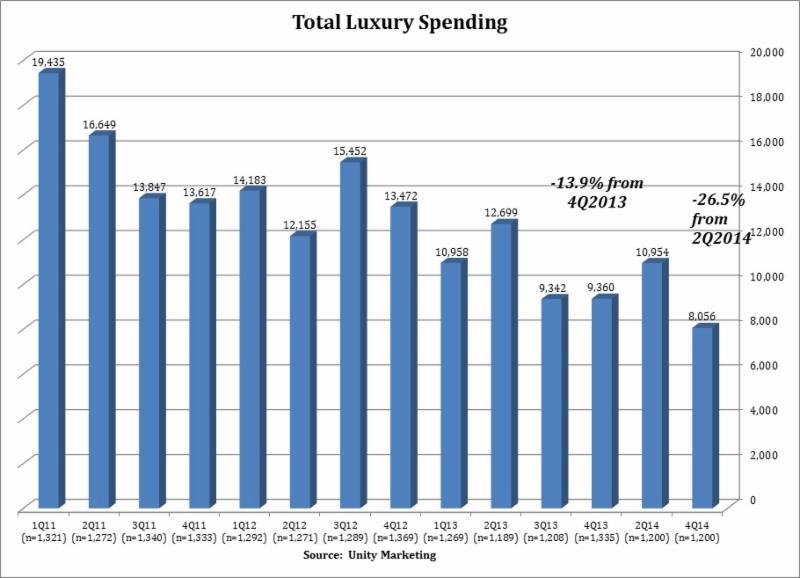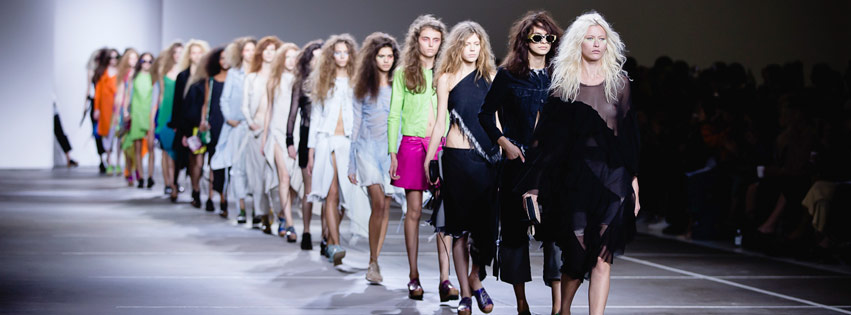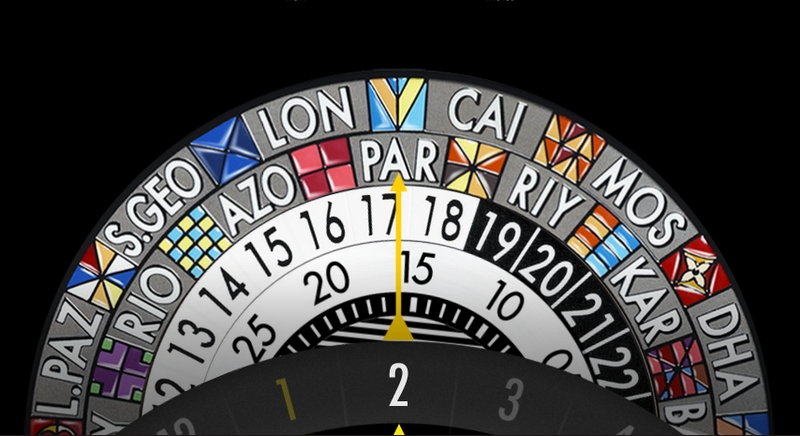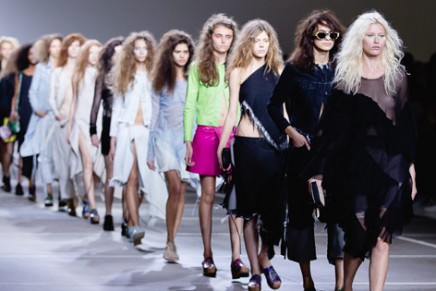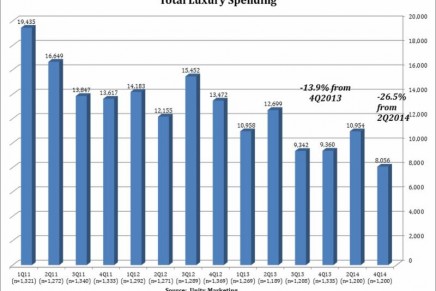This is the ‘luxury drought”
The conventional wisdom is that as people feel wealthier, they tend to spend more money on consumer goods and services. But today a reverse wealth effect is taking hold, according to a report from Unity Marketing entitled Marketing in New Luxury Style in 2015: What Affluents Buy, How They Spend, Where They Shop & How They Feel about their Wealth & Finances.
A new style of luxury has taken hold reflected in consumers’ preference for high-quality brands, but without paying the premium for marketing-generated prestige.
In Unity Marketing’s latest survey among n=1,200 high-income consumers (average income $266.9k) affluent consumer confidence as measured by the Luxury Consumption Index (LCI) rose while spending declined by 26.5% from the previous quarter.
“In the current economy, with so many uncertainties and the memory of the effects of the recession and the damage it did to their investments and home values, the affluent are holding back on their spending despite the fact that their wealth is increasing,” said Pam Danziger, president of Unity Marketing and author of the new report.

“I suspect that we will continue to see this reverse wealth effect to put the brakes on luxury spending in the U.S. until the overall economic environment, not just in the U.S. but globally, starts to show signs of strength and stability. But we are already one fourth of the way into 2015, and the global outlook continues to be troubling.”
Part of the issue facing luxury marketers is consumers’ distrust of the term luxury. The belief is that instead of communicating quality, it is selling high-cost but over-rated items. “To appeal to affluent consumers, marketers must recognize that simply calling their product ‘luxury’ doesn’t necessarily make it so,” Danziger says. “Further, luxury has gotten a negative connotation, with public opinion turning against income inequality. Being rich and enjoying the privileges of wealth simply isn’t something that the wealthy feel comfortable showing,” she said.
Conspicuous consumption has turned to conscientious consumption in a new style of luxury.
Affluents aren’t afraid to spend, nor are they unwilling to, but marketers have to convince them that what you are selling them is worth the price. Asking them to pay a huge premium for a luxury-brand logo won’t work anymore, when so much really good quality product is readily available through the internet.
“Technology is leveling the playing field for competitors. It is the ultimate democratic force for consumers. It equalizes all through the power of information,” Danziger explains. “By contrast the whole concept of luxury brands is based upon a plutocratic idea, or power and influence based upon wealth and prestige. With the idea of luxury brands the ultimate ‘smoke and mirrors’ of marketing, techno-powered consumers can now pull back the curtain and uncover the myths behind these brands.”
